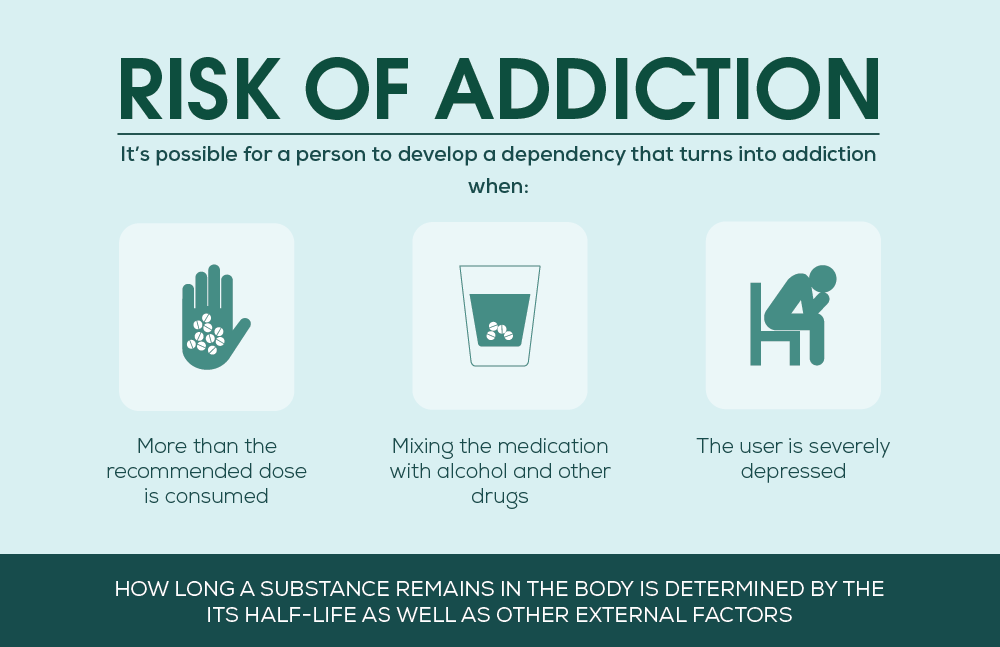
- Xanax
-
by rohit1
The Dangers of Xanax Abuse and Dependence: Xanax, the brand name for the generic drug alprazolam, is a potent medication commonly prescribed to manage anxiety and panic disorders. While it can provide much-needed relief when used as directed, it also carries a significant risk of abuse and dependence. This guide explores the risks of misusing and becoming dependent on Xanax. It covers the effects, signs of abuse, withdrawal symptoms, and ways to prevent and recover from addiction.

The Dangers of Xanax Abuse and Dependence: Table of Contents
- Introduction
- Understanding Xanax
- The Emerging Issue of Abuse and Dependence
- How Xanax Works
- Mechanism of Action
- Therapeutic Uses
- Signs and Symptoms of Xanax Abuse
- Behavioral Indicators
- Physical and Psychological Signs
- Consequences of Xanax Abuse
- Health Risks
- Impact on Mental Health
- Social and Legal Consequences
- The Cycle of Dependence
- Tolerance and Escalating Use
- Physical and Psychological Dependence
- Withdrawal and Detox
- Xanax Withdrawal Symptoms
- Detox Process
- The Importance of Medical Supervision
- Treatment and Recovery
- Treatment Options
- Recovery Strategies
- Support Systems
- Preventing Xanax Abuse
- Responsible Prescribing Practices
- Patient Education
- Raising Awareness
- Conclusion
- The Urgency of Addressing Xanax Abuse
- A Path to Healing and Recovery
- FAQs
- What is the difference between Xanax abuse and dependence?
- How can I help a loved one who is struggling with Xanax dependence?
- Can individuals use Xanax safely for anxiety without risking abuse?
- What are the long-term effects of Xanax abuse on mental health?
- Are there alternatives to Xanax for anxiety management?
The Dangers of Xanax: Introduction
Understanding Xanax
Doctors prescribe Xanax, a member of the sedative class of drugs, to alleviate symptoms of anxiety, side effect, and panic disorders. When used properly, it can be an effective tool for managing these conditions. However, the misuse and abuse of Xanax have become growing concerns in recent years.
The Emerging Issue of Abuse and Dependence
The misuse of Xanax is a complex issue with significant implications for individuals’ health, well-being, and society as a whole. This guide explains the risks of misusing Xanax and becoming dependent on it, offering important information for people and healthcare professionals.

The Dangers of Xanax: How Xanax Works
Mechanism of Action
Understanding how Xanax works in the brain is crucial to grasp why it has a potential for abuse and dependence. Xanax enhances the effects of gamma-aminobutyric acid (GABA), a epinephrine that produces a calming effect on the central nervous system.
Therapeutic Uses
Doctors use Xanax to treat anxiety and panic disorders. It helps with symptoms like worry, fear, and panic attacks. While it serves a valuable therapeutic purpose, people can also misuse it for its sedative effects.
Signs and Symptoms of Xanax Abuse
Behavioral Indicators
Identifying the indications of Xanax misuse requires paying close attention to various changes in man behavior and actions. One of the key signs to look out for is when someone becomes secretive about their drug consumption.
People who use Xanax may go to great lengths to conceal their usage. This can include hiding pill bottles or finding excuses to leave the room when taking the medication. This secretive behavior is often a red flag that they are misusing Xanax.
Another indication of Xanax misuse is when someone starts pursuing numerous prescriptions for the medication. They may visit multiple doctors or clinics in an attempt to obtain more Xanax than what is medically necessary. “Doctor shopping” is when someone tries to misuse a drug instead of using it for valid medical reasons.
Furthermore, individuals who misuse Xanax often engage in hazardous actions while under the influence of the medication. Xanax is a potent sedative that can impair judgment, coordination, and reaction time. If someone is engaging in risky or dangerous activities while taking Xanax, it indicates that they are misusing the drug. This means that they are not using it as intended or prescribed.
These signs do not for sure prove Xanax misuse, but they serve as important warnings that one should not ignore. If you think someone is misusing Xanax, be careful and urge them to get professional help.
Physical and Psychological Signs
Physical signs of Xanax abuse may include drowsiness, slurred speech, and impaired coordination. Psychological indicators encompass mood swings, anxiety, and cognitive impairment.

Consequences of Xanax Abuse
Health Risks
Xanax addiction can cause health problems like breathing issues, memory loss, and higher chances of accidents and injuries.
Impact on Mental Health
Misusing Xanax can make mental health problems worse, causing more anxiety, depression, and even addiction issues.
Social and Legal Consequences Misusing Xanax can damage relationships, cause job loss, and result in legal problems, especially if obtained illegally
The Cycle of Dependence
Tolerance and Escalating Use
Over time, people may become used to Xanax’s calming effects and need to take more to get the same results. This pattern of escalating use is a red flag for dependence.
Physical and Psychological Dependence
Xanax addiction can cause both physical and physical dependence, making it difficult to quit without professional assistance.
Withdrawal and Detox
Xanax Withdrawal Symptoms
The withdrawal symptoms associated with Xanax can be severe and include anxiety, insomnia, tremors, and seizures. The intensity of withdrawal underscores the importance of medical supervision during sudden withdrawal.
Detox Process
Detox is the initial step in treating Xanax dependence. It involves gradually tapering off the medication while addressing withdrawal symptoms.
The Importance of Medical Supervision
Medical supervision is important during detox to manage dangerous withdrawal symptoms that can happen when people suddenly stop using Xanax.
Treatment and Recovery
Treatment Options
Different treatments, like therapy, groups, and medication, can help people stop relying on Xanax and start recovering.
Recovery Strategies
Recovery from Xanax dependence requires commitment and a many-sided approach, including therapy, lifestyle changes, and ongoing support.
Support Systems
The role of support systems, including family, friends, and healthcare professionals, is invaluable in the recovery process.

Preventing Xanax Abuse
Responsible Prescribing Practices
Healthcare professionals play a vital role in preventing Xanax misuse by taking responsible measures in prescribing the drug. Before prescribing Xanax, it is important to assess the patient’s medical history, mental health, and risk factors for substance abuse. Healthcare professionals can find patients at risk of misusing or becoming dependent on Xanax by doing a careful assessment.
Furthermore, healthcare professionals must closely monitor and oversee patient consumption of Xanax. Regular appointments are necessary to: – Monitor the effectiveness of the medication.
Assess any potential side effects. – Verify the appropriate dosage for the patient. Healthcare professionals can detect signs of misuse or dependency early by closely monitoring the patient’s progress and take action.
In addition to responsible prescribing and monitoring, healthcare professionals should also consider alternative treatment options when suitable. Xanax is a powerful medication that can be highly effective in treating certain conditions, such as anxiety disorders. Healthcare professionals should consider non-drug treatments or different medications that work well but have less risk of misuse or dependence. This may include therapy, counseling, lifestyle changes, or other medications that have a lower potential for abuse.
By taking these proactive measures, healthcare professionals can contribute significantly to the prevention of Xanax misuse. Doctors should prescribe responsibly to reduce the chance of misuse and dependency. They should also keep a close eye on patients and consider other treatment choices. Ultimately, the role of healthcare professionals in preventing Xanax misuse is crucial in ensuring the well-being and safety of patients.
Patient Education
Teaching patients about Xanax risks, following prescribed doses, and potential dependence is crucial to prevent abuse.
Raising Awareness
Raising public awareness about the dangers of Xanax abuse and the availability of treatment resources can contribute to prevention efforts.
Conclusion
In the concluding chapter, we underscore the urgency of addressing Xanax abuse and dependence. We emphasize that recovery is possible with the right support and treatment, highlighting a path to healing and well-being.
FAQs
This section addresses common concerns and inquiries regarding Xanax abuse and addiction. It offers guidance to individuals seeking assistance for themselves or their family members.
This guide helps us understand the dangers of Xanax abuse and addiction. It raises awareness, identifies signs, and promotes responsible prescribing. Together, we can address this issue and support those who need help to recover.




